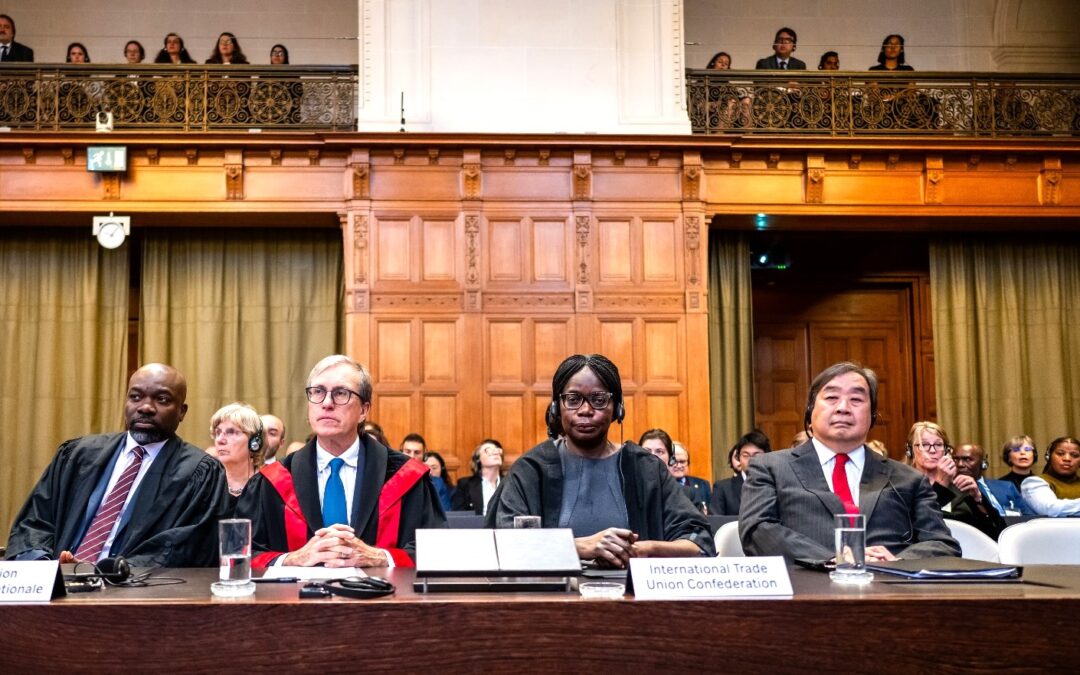In a case with major implications for workers, the International Trade Union Confederation (ITUC) this week presented oral arguments before the International Court of Justice (ICJ), the highest global court.
Their clear message: The right to strike is essential to the effective exercise of the right to freedom of association and collective bargaining – a right which is necessary to counter the imbalance of power in the workplace.
The issue arose in 2012 when the employers’ representatives in the ILO denied that the ILO convention (treaty) on freedom of association, No. 87, protects a right to strike—despite backing its inclusion for 60 years. The move also sought to weaken the ability of the ILO to interpret its own treaties.
Thirteen years later, workers and governments, over the employers’ objection, were able to put the matter to the ICJ.
“From the first documented strike by tomb-workers in ancient Egypt 2 to the collective actions taken around the world today, strikes are a quintessential expression of industrial action, as old as labor itself,” International Trade Union Confederation (ITUC) Legal Director Paapa Danquah, said before the court
“Strikes have been our vital tool: to improve labor conditions and to defend our human dignities against exploitation and commodification.”
Lawyers from the International Lawyers Assisting Workers (ILAW) Network supported the ITUC’s legal team in the case and participated in ICJ proceedings at The Hague. The Solidarity Center established the ILAW Network in 2018 as a global hub for worker rights lawyers to facilitate innovative litigation, help spread the adoption of pro-worker legislation and defeat anti-worker laws.
Governments: Right to Strike Is Essential
With few exceptions, government after government explained to the court why the right to strike is essential to address inequality and to maintain a democratic society.
A powerful speech from the government of South Africa illustrated how the freedom to strike was banned under apartheid and, with ILO assistance, the post-apartheid constitution then protected the right to strike and was enshrined in its new labor laws.
The government of Brazil linked the right to strike to human rights and sustainable development. And Vanuatu, which was recently before the ICJ on the issue of climate change, linked the right to strike to a just transition.
Australia, Colombia, Germany, Norway, Somalia, Spain, the United Kingdom and Uruguay also gave compelling testimony asserting that the right to strike is protected by ILO Convention 87.
The issue is now with the court’s 14 judges. The advisory opinion is expected in the coming months. Once decided, the matter will be sent to the ILO’s Governing Body, on which the Solidarity Center’s Rule of Law Director serves, for further action based on the court’s opinion.
Full written and oral statements:

